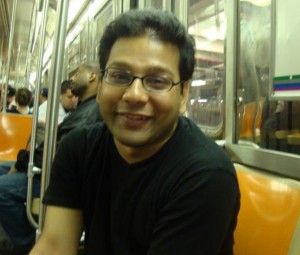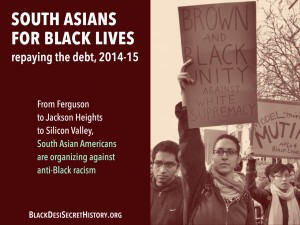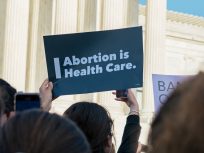
Note: The visuals are from The Secret History of South Asian and African American Solidarity (blackdesisecrethistory.org) curated by Aniravan Chatterjee.
[dropcap]A[/dropcap]ttn: middle class, non-Black folks. We have lost our right to celebrate Martin Luther King, Jr.You heard me right. I’m formally disinviting us from this party.
In “Letter From Birmingham Jail”, Dr. King wrote, “You deplore the demonstrations that are presently taking place in Birmingham. But I am sorry that your statement did not express a similar concern for the conditions that brought the demonstrations into being.”
Today, the same could be said about the way in which we celebrate a sanitized and sanctified image of Dr. King, while avoiding the real issues of life and livelihood that Black people everywhere face today. As a result, our commemoration of Dr. King is working at cross-purposes to all that he stood for as an advocate for equality.
The transformation of Dr. King into a symbol robbed of the vitality and struggle that made his life worthy of emulation in the first place is part of the way in which race is constructed in the United States today. Dr. King was deeply unpopular before his death. But by the time I first learned about Dr. King, as a middle class, South Asian growing up in a mostly White suburb in 1980s suburban New York, his reputation had already been mostly transformed. Yet, there was something still earnest about celebrating him, and even potent; in fact, MLK Day had not yet been established as a public holiday throughout the entirety of the United States.
Today, I live in a country in which corporate diversity initiatives are widespread, but so too is continuing racist violence, violence that never went away. Not coincidental to this is the approach of institutions like the Democratic Party that use a shallow brand of identity politics to draw support, while papering over the collective struggles that generated those identities in the first place and continuing to implement policies that worsen Black people’s lives.
And it’s not just politicians and hacks. Over the years, I have heard about Dr. King more and more as an advocate for nonviolence for its own sake and in all contexts, rather than as a proponent for Black liberation, as if the one existed without the other. In that context, the publicly sanctioned image of Dr. King has come to represent to me the “lukewarm acceptance” of the moderate that he found “much more bewildering than outright rejection” in the Letter from Birmingham Jail.
As a result, the fact that the violence of his era continued into ours is downplayed, the connections are ignored between the police brutality, incarceration, and violence he faced as a Black person and those faced by Black people in today’s United States. Moreover, the methods that were used to achieve what gains were made by Dr. King and his colleagues–namely, direct action– are routinely dismissed as antithetical to MLK’s life and struggle.
Most recently, I have seen him referenced to cut the Black Lives Matter movement with the carefully colorblind alternative, “All Lives Matter.” There is something revolting in this construction, in deploying MLK, one of the most well-known advocates for Black liberation and a repeated victim of police brutality himself, against Black victims of police brutality and the movement that stands with them.
The loved ones of Sandra Bland, Akai Gurley, Tamir Rice, Mike Brown, Eric Garner, Freddie Gray, Raphael Briscoe, Alonzo Smith, Amadou Diallo, and so many others can remind us daily that state violence and White supremacy have continued in the decades since Dr. King was with us. And just as the violence and anti-Black racism never ended, neither did the Black liberation movement.
And it’s not Black folks who are doing that downplaying and ignoring- it’s the rest of us. There are a million Black people in prison! A million! And still, most of us silently pay our taxes that fund this incarceration and other violence against Black communities and claim that the world is a “better” place than when Dr. King was alive.
This is particularly offensive when middle class, non-Black people of color do this. The personal reward of getting a pat on the head from White supremacy and staying out of trouble are not enough to justify internalizing whole cloth a skewed perspective. It is one that defies not just history and logic but is complicit in the struggles of Black people and other oppressed groups today.

So, I say, stop celebrating, middle class, non-Black folks. We don’t need to be celebrating, not until we’re showing up to make sure our Black friends and loved ones know they will be alive, out of jail, and able to breathe until the next Martin Luther King, Jr. Day and beyond. We need to commit to ending police brutality against Black people, to supporting low-income Black folks with jobs and housing instead of jails and warfare, and to ending inequality forever.
If the only way to make us do that is to take away our right to celebrate Dr. King as a saint, then I am fairly sure that that’s what he would have wanted us to do. After that, we can go back to misrepresenting Dr. King, ignoring his opposition to war, and pretending he never spoke out against capitalism.
But by then, I don’t think we’ll feel any need to.
Saurav Sarkar, a solidarity activist based in Washington, DC. He is a middle class South Asian American.




